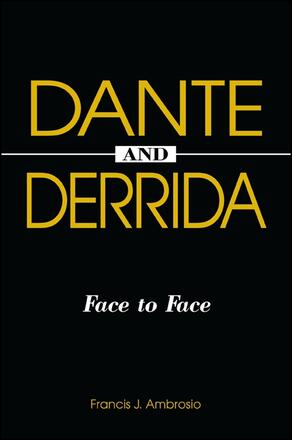
Dante and Derrida
Face to Face
Alternative formats available from:
Discusses Derrida as a religious thinker, reading Dante’s Commedia and Derrida’s religious writings together.
Description
Reading Dante's Commedia alongside Jacques Derrida's later religious writings, Francis J. Ambrosio explores what these works reveal about religion as a fundamental dynamic of human existence, about freedom and responsibility, and about the significance of writing itself. Ambrosio argues that both the many telling differences between them and the powerful bonds that unite them across centuries show that Dante and Derrida share an identity as religious writers that arises from the human experiences of faith, hope, and love in response to the divine mystery of being human. For both Dante and Derrida, Ambrosio contends, "scriptural religion" reveals that the paradoxical tension of freedom and absolute responsibility must lead to the mystery of forgiveness, a secret that these two share and faithfully keep by surrendering to its necessity to die so as always to begin again anew.
Francis J. Ambrosio is Associate Professor of Philosophy at Georgetown University and the editor of The Question of Christian Philosophy Today.
Reviews
"…a valuable book … Ambrosio achieves a portion of his goal of reconciling contemporary 'styles of piety' with Dante's. " — Modern Philology
"Ambrosio's venture of taking Derrida as his Virgil in reading Dante succeeds quite well … Thanks to Derrida, Ambrosio confirms again what a profound intellectual, even philosophical, challenge Christianity still offers readers of this great poet and thinker. " — Notre Dame Philosophical Reviews
"Francis Ambrosio has carried out a novel and incisive analysis that sheds important light on Derrida's analysis of the aporia of forgiveness by taking up the question of Derrida and Dante. The result is an unusual combination of historical erudition and philosophical insight into one of the most provocative thinkers of our time and an outstanding contribution to continental philosophy of religion. " — John D. Caputo, author of The Weakness of God: A Theology of the Event
"I like very much the author's imaginative, audacious, writerly engagement with the texts he interprets. There is much that is provocative in these readings, and the flair and style of the writer's language—in many ways an extension of Derrida's own style of writing and interpretation—announce an appreciable new talent. " — William Franke, author of Dante's Interpretive Journey